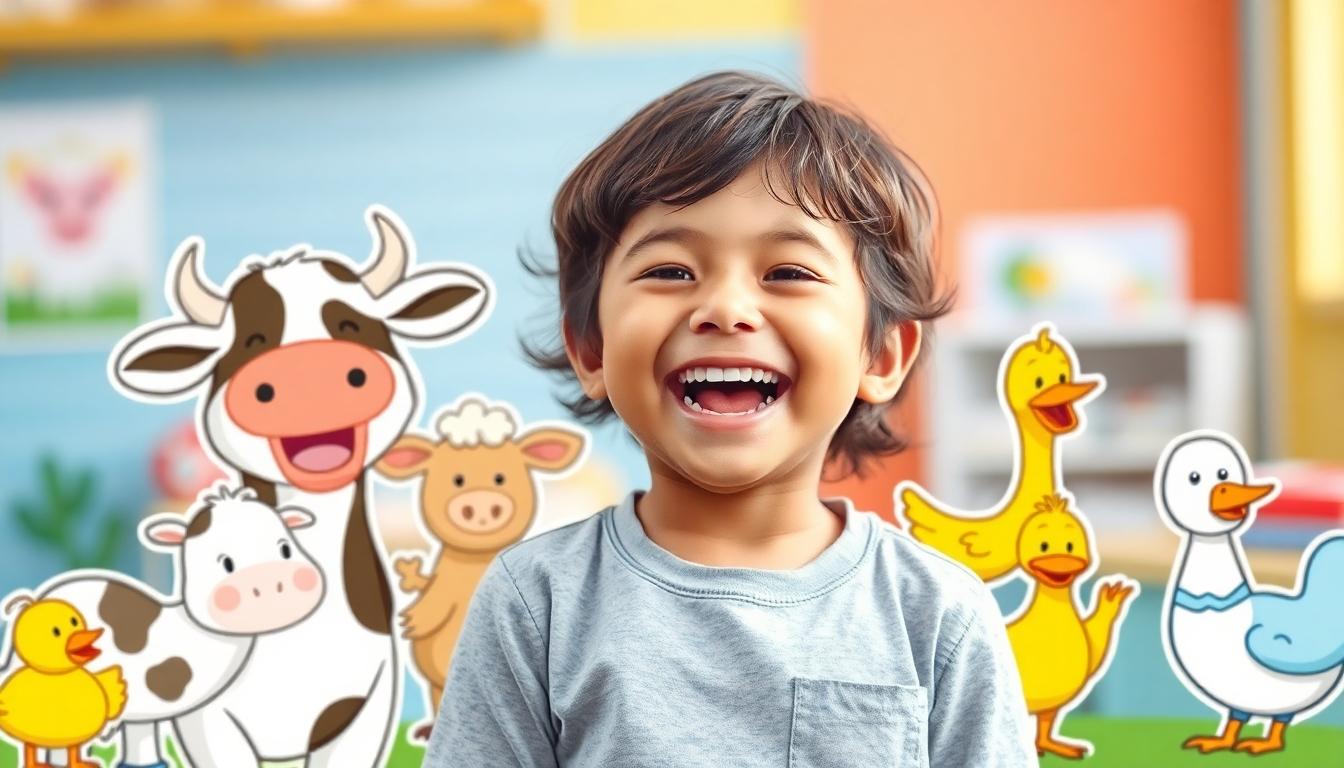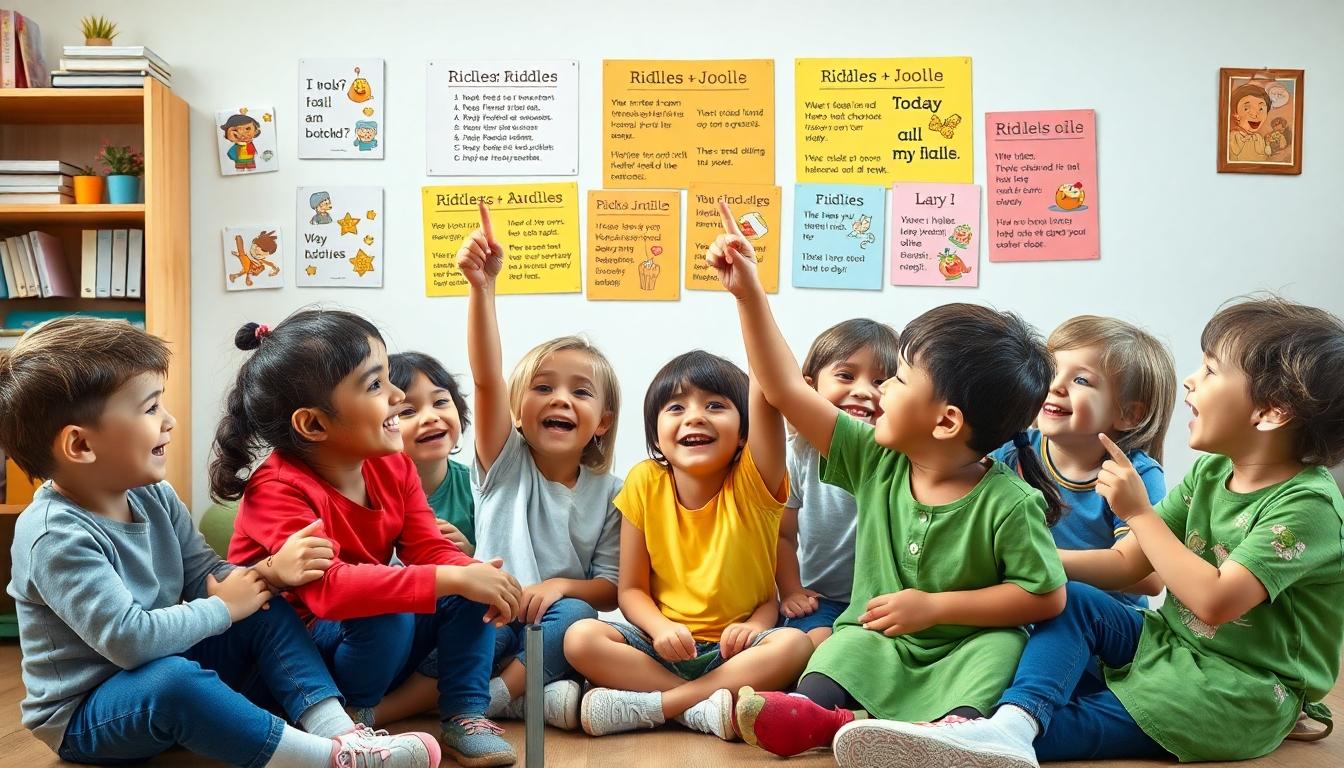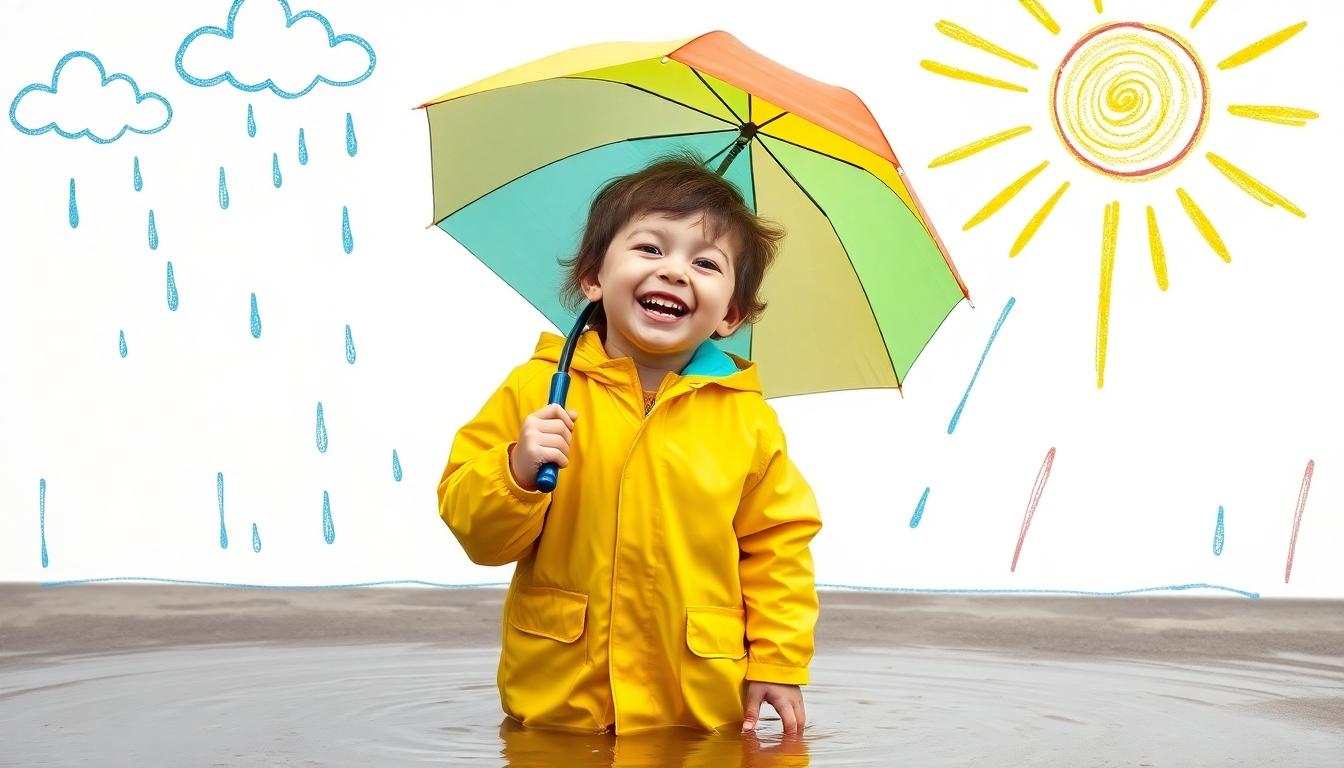Looking for ways to brighten your 6-7 year old’s day? Nothing creates more giggles and lasting memories than sharing age-appropriate jokes with young children. These little comedians are at the perfect age to appreciate humor, develop their language skills, and understand simple wordplay.
We’ve compiled the ultimate collection of kid-tested, parent-approved jokes specifically designed for early elementary schoolers. From knock-knock classics to silly animal puns, these jokes hit the sweet spot for this developmental stage. They’re clean, easy to remember, and guaranteed to spark contagious laughter during car rides, family dinners, or whenever you need to turn frowns upside down.
Why Age-Appropriate Jokes Are Important for 6-7 Year Olds
Sharing jokes with 6-7 year olds isn’t just about getting a laugh—it serves several important developmental purposes. Children at this age are in a critical period for developing their language skills, social awareness, and cognitive abilities. Age-appropriate humor helps them understand language nuances while keeping content clean and understandable.
Developmentally, 6-7 year olds are beginning to grasp more complex concepts but aren’t ready for mature humor. They’re mastering basic reading skills and understanding simple wordplay, making puns and silly jokes perfect for their comprehension level. Their brains are actively forming connections through these humorous interactions, strengthening neural pathways related to language processing.
Emotionally, jokes create positive bonding experiences between parents and children. These shared moments of laughter release endorphins and create lasting memories for both kids and adults. Humor also helps children develop emotional intelligence by learning to recognize when others are joking versus being serious.
Socially, knowing age-appropriate jokes gives kids confidence in group settings. When children share jokes with friends, they’re practicing important social skills like timing, delivery, and reading audience reactions. This confidence boost is invaluable for their developing self-esteem and social competence.
Educational benefits of age-appropriate jokes include expanding vocabulary, improving memory, and improving critical thinking. Kids naturally want to remember and retell jokes they find funny, inadvertently practicing important cognitive skills. The element of surprise in joke punchlines also teaches children about unexpected outcomes and creative thinking.
Protection from inappropriate content is another crucial reason for age-appropriate humor. Children at 6-7 years old are naturally curious but still need sheltering from mature themes. Providing them with a repertoire of clean, fun jokes satisfies their desire for humor without exposing them to concepts they’re not ready to process.
10 Silly Animal Jokes That Will Make Your Child Giggle

Kids love animal jokes, and these ten silly jokes are perfect for your 6-7 year old’s developing sense of humor. They’re simple to remember yet guaranteed to produce giggles!
Barnyard Humor That Never Gets Old
- Cow Joke: Why did the cow join a band? Because she wanted to be a moo-sician!
- Sheep Joke: Why did the sheep refuse to play poker? Because he always got fleeced!
- Chicken Joke: Why did the chicken go to school? To improve its egg-ducation!
- Duck Joke: At what time does a duck wake up? At the quack of dawn!
- Pig Joke: Why did the pig join the circus? Because it was a real ham!
- Horse Joke: Why did the horse get a job? Because it wanted to earn some hay!
Wild Animal Jokes for Young Explorers
- Rooster Joke: Why did the rooster go to the gym? To work on its pecks!
- Sheep & Party: Why did the sheep go to the party? Because it heard there would be a lot of baaa-rbecue!
- Duck & Lipstick: What did the duck say when it bought lipstick? “Put it on my bill!”
8 Knock-Knock Jokes Perfect for Early Elementary Kids

Knock-knock jokes are a childhood staple that never fails to entertain 6-7 year olds. These interactive jokes are particularly effective for early elementary kids because they follow a simple format that children can easily remember and retell.
Classic Knock-Knock Jokes That Still Work
Knock-knock jokes have been making kids giggle for generations, and these classics continue to deliver laughs in elementary classrooms and playgrounds:
- Knock knock. Who’s there? Boo. Boo who? Don’t cry, it’s just a joke! This timeless joke plays on the “boo-hoo” crying sound, making it instantly relatable for young children.
- Knock knock. Who’s there? Cows go. Cows go who? No, cows go “moo”! Kids love animal sounds, and this joke cleverly plays with the expected response in the knock-knock format.
- Knock knock. Who’s there? Orange. Orange who? Orange you glad I didn’t say banana? This joke works especially well when told after a series of banana-themed knock-knock jokes, creating a pattern break that surprises and delights young listeners.
- Knock knock. Who’s there? Little old lady. Little old lady who? I didn’t know you could yodel! The “little old lady who” punchline sounds like yodeling when said quickly, bringing a physical comedy element that kids appreciate.
New Twists on Traditional Favorites
These updated knock-knock jokes offer fresh humor that today’s early elementary kids can relate to:
- Knock knock. Who’s there? Dwayne. Dwayne who? Dwayne the bathtub, I’m dwowning! This play on words transforms “drain” to “Dwayne,” creating a silly scenario that appeals to the developing language skills of 6-7 year olds.
- Knock knock. Who’s there? Who. Who who? I didn’t know you were an owl! Children at this age are fascinated by animal sounds, making this owl-themed joke particularly appealing to their sense of humor.
- Knock knock. Who’s there? Nunya. Nunya who? Nunya business! This joke introduces kids to playful banter in a way that’s still appropriate for their age group.
- Knock knock. Who’s there? Amnesia. Amnesia who? I don’t know, I forgot! This joke introduces a more sophisticated concept (amnesia) but delivers it with a punchline that’s straightforward enough for young children to understand and appreciate.
7 Riddles That Boost Problem-Solving Skills

Riddles are fantastic brain teasers that challenge young minds while delivering laughs. We’ve gathered seven perfect riddles that help 6-7 year olds develop critical thinking skills while having fun.
- What is brown and sticky?
A stick! This simple wordplay riddle makes children think about different meanings of the word “sticky” and surprises them with a literal answer.
- Why was 6 afraid of 7?
Because 7, 8, 9! Kids love this numeric wordplay that turns the number “8” into the verb “ate,” creating a silly scenario that exercises their phonemic awareness.
- What gets wetter as it dries?
A towel! This brain teaser introduces children to paradoxical thinking, encouraging them to consider how something can perform seemingly opposite actions simultaneously.
- What do you call a snowman in summer?
A puddle! Children must visualize what happens to snow in warm weather, connecting cause and effect in a humorous way.
- I have a face and hands but no arms. What am I?
A clock! This riddle helps children recognize metaphorical language and understand how objects can have parts named after human features.
- What cheese encourages Pooh Bear?
Camembert (Come on bear)! This clever riddle helps children recognize how similar sounds can create wordplay across different words.
- What do lions sing on their birthdays?
The lion king song! This playful riddle connects animals with familiar cultural references, building associative thinking skills.
Easy Beginner Riddles for 6-7 Year Olds
Young riddle solvers can start with these simpler puzzles that still deliver big laughs:
- Knock knock… Who’s there? Who… Who who?
I didn’t know you were an owl! This classic introduces children to the familiar knock-knock format while playing with animal sounds.
- What do you call a fish without eyes?
Fsh! Children delight in this visual wordplay that removes the letter “i” (eyes) from “fish.”
- Why did the cookie go to the hospital?
Because it felt crummy! This introduces children to puns, where “crummy” describes both feeling unwell and cookie crumbs.
- What did 8 say to 0?
I like your belt! Kids must visualize the numbers as characters and see how “0” resembles someone wearing a belt.
- What do you call a dinosaur with one eye?
Dyafinkeesaurus (Do you think he saw us)! This longer verbal joke helps children develop phonemic awareness through creative pronunciation.
Slightly Challenging Riddles That Make Kids Think
These riddles add an extra layer of complexity while remaining accessible to 6-7 year olds:
- Why did the man throw water out a window?
To see a waterfall! Children must connect the literal action with its humorous intended outcome.
- What did Sherlock Holmes do when he dropped his phone?
He cracked the case wide open! This riddle introduces children to simple cultural references while playing with multiple meanings of “case.”
- Why did the golfer bring two pants?
In case he got a hole in one! Sports terminology creates a clever pun that exercises a child’s understanding of context.
- What did the ocean say to the beach?
Nothing, it just waved! This personification riddle helps children understand metaphors by giving human qualities to natural elements.
- Why don’t skeletons fight?
They don’t have the guts! Children learn about body idioms while giggling at the literal interpretation of “having guts” as courage.
6 Food-Themed Jokes Kids Love to Share

Kids have a natural appetite for food jokes, and these six culinary quips are perfect for 6-7 year olds to digest and share with friends. Food-themed humor works particularly well with this age group because the concepts are familiar and the punchlines are easy to remember.
- Why did the banana go to the doctor?
Because it wasn’t peeling well! This fruity joke combines a familiar food with a clever play on words that kids can easily understand and repeat at snack time.
- What kind of nuts always seem to have a cold?
Cashews! The wordplay between “cashews” and “achoo” (the sound of a sneeze) creates an immediate giggle factor that young children appreciate during lunch box exchanges.
- What do you call cheese that isn’t yours?
Nacho cheese! This classic joke remains a favorite because it combines food with the concept of possession, something kids are very familiar with at this age.
- How do you make an artichoke?
You strangle it! Children find this visual joke particularly amusing because it takes an unfamiliar vegetable and creates a surprising punchline that plays on different word meanings.
- What’s the best thing to put into a pie?
Your teeth! This unexpected answer delights kids because it subverts expectations while being literally true, teaching them about humor that involves thinking differently.
- Why are spinach leaves never lonely?
They come in bunches! Kids appreciate this joke because it personifies vegetables and introduces a simple pun that connects with their growing understanding of language.
These food jokes offer more than just laughs—they help children develop language skills through puns and wordplay while making mealtime more entertaining. Many parents find that sharing these jokes during dinner creates positive associations with family meals and encourages healthy food conversations.
9 “What Do You Call…” Jokes for School-Age Children

“What do you call” jokes are perfect for 6-7 year olds because they’re simple to understand and deliver a fun punchline that kids can easily remember. These jokes use wordplay that appeals to school-age children who are just starting to grasp more complex language concepts. We’ve gathered nine hilarious “what do you call” jokes that’ll have your little ones giggling for hours.
- What do you call 2 robbers? Two robbers! This literal joke makes kids laugh because of its unexpected simplicity when they’re anticipating a clever punchline.
- What do you call a donkey with 3 legs? A wonky donkey! Children love animal jokes with rhyming punchlines that create funny mental images.
- What do you call a bear that can play the piano? A bear-itone! This musical pun combines “bear” and “baritone,” introducing kids to wordplay that blends animals and music.
- What do you call a cow with no legs? Ground beef! This joke helps children connect everyday food items with their origins in a playful way.
- What do you call a dinosaur with an extensive vocabulary? A thesaurus! Kids learning about dinosaurs and just discovering reference books will appreciate this clever play on words.
- What do you call a fish that practices medicine? A sturgeon! This pun works by playing on “surgeon” and introducing children to different fish species while making them laugh.
- What do you call a snowman with a six-pack? An abdominal snowman! This twist on “abominable snowman” introduces body-related vocabulary with a winter theme kids recognize.
- What do you call mozzarella that doesn’t belong to you? Nacho cheese! This food-based joke uses possession concepts in a way that’s immediately understandable to young children.
- What do you call a lazy kangaroo? A pouch potato! Combining “couch potato” with kangaroo knowledge creates a joke that’s both educational and entertaining.
These jokes can be shared during car rides, at the dinner table, or as ice-breakers at school. Their simple format makes them easy for children to memorize and share with friends, helping them develop social confidence while mastering the art of joke-telling.
5 Clean Jokes About School Life

School offers endless material for jokes that 6-7 year olds can appreciate and share with their classmates. We’ve gathered five clean, classroom-appropriate jokes that will have young students giggling without getting sent to the principal’s office.
- Why isn’t there a clock in the library?
Because it tocks too much! Libraries need quiet, and this play on “talks” versus “tocks” creates a perfect joke for early readers who are learning about library etiquette.
- What did the glue get in trouble for at school?
It couldn’t stick to the rules! Kids love this joke because it uses the literal properties of glue in a clever wordplay about following classroom expectations.
- Why did the kid bring a ladder to school?
Because they wanted to go to high school! This joke introduces young children to the concept of “high school” with a literal interpretation that’s perfectly suited to their concrete thinking.
- What is black when it’s clean and white when it’s dirty?
The blackboard! This riddle-style joke works wonderfully for elementary school students who are familiar with traditional classroom blackboards and the chalk that makes them “dirty” with writing.
- Why do magicians always do so well at school?
They can handle trick questions! This clever punchline connects a magician’s tricks with the concept of tricky test questions, making it relatable for students just starting to experience quizzes and tests.
These school-themed jokes provide the perfect material for lunchtime conversations, classroom ice-breakers, or just brightening up assignments time. Young children can easily memorize these short jokes and enjoy the confidence boost when sharing them with friends and teachers.
8 Weather and Nature Jokes That Teach While Entertaining

Weather and nature jokes offer a perfect blend of humor and learning for 6-7 year olds. These kid-friendly jokes introduce scientific concepts through wordplay while keeping children giggling. Here are eight weather and nature jokes that will have your child laughing while subtly learning about the industry around them:
- Q: What did the tornado say to the sports car?
A: “Want to go for a spin!”
Kids love this joke because it plays on the literal spinning motion of tornadoes while introducing this powerful weather phenomenon.
- Q: What kind of shorts do clouds wear?
A: Thunderwear
This playful joke connects clouds with thunder, helping children understand the relationship between these weather elements.
- Q: How do hurricanes see?
A: With one eye
Children learn about hurricane structure through this clever joke, as hurricanes indeed have a distinctive eye at their center.
- Q: What does a cloud wear under his raincoat?
A: Thunderwear!
The connection between clouds, rain, and thunder becomes clearer with this humorous take on weather patterns.
- Q: What happens when it rains cats and dogs?
A: “You have to be careful not to step in a poodle”
This classic joke introduces the idiom “raining cats and dogs” while delivering a punchline that never fails to get giggles.
- Q: What did one lightning bolt say to the other?
A: “You’re shocking!”
Lightning concepts become more captivating when presented through this electrifying wordplay.
- Q: Why did the sun go to school?
A: “To get a little brighter!”
Solar concepts and learning metaphors combine in this joke that resonates with school-aged children.
- Q: What’s a snowman’s favorite drink?
A: Ice tea!
States of matter (ice/water) are playfully introduced in this seasonal joke about everyone’s favorite winter figure.
These weather jokes provide educational value by introducing meteorological concepts through humor. They foster curiosity about science while developing vocabulary around natural phenomena. We’ve found that incorporating these jokes during science lessons or rainy days creates memorable learning moments that children eagerly share with friends and family.
How to Use Humor to Bond With Your 6-7 Year Old

Humor serves as a powerful tool for connecting with your 6-7 year old child, fostering emotional development and strengthening your relationship. Children at this age are developing their language skills and beginning to understand more complex forms of wordplay. We’ve compiled effective strategies and age-appropriate joke categories to help you use humor as a bonding opportunity with your child.
Joke Categories for 6-7 Year Olds
Puns and Wordplay
Six and seven-year-olds particularly enjoy simple wordplay as they’re mastering language nuances. Try these tested favorites:
- “Why was 6 afraid of 7? Because 7, 8 (ate) 9!”
- “What’s brown and sticky? A stick!”
- “Why did the banana go to the doctor? Because it wasn’t peeling well!”
Knock-Knock Jokes
Knock-knock jokes provide a predictable format that children this age find comforting and amusing:
- “Knock knock. Who’s there? Nunya. Nunya who? Nunya business!”
- “Knock knock…Who’s there? Who…Who who? I didn’t know you were an owl!”
Animal-Themed Humor
Animal jokes consistently rank among children’s favorites due to their familiar subjects:
- “What do you call a cow with no legs? Ground beef!”
- “What do you call a lazy kangaroo? A pouch potato!”
- “Two fish in a tank: ‘Do you know how to drive this thing?'”
Everyday Object Jokes
Jokes about common items help children connect humor to their daily experiences:
- “Why did the cookie go to school? To become a smart cookie!”
- “Why did the stadium get hot? All the fans left!”
Bonding Strategies
Interactive Joke-Telling
Engage your child actively in the joke-telling process to make it more meaningful. Ask them to fill in punchlines after they become familiar with certain jokes. For example, start with “Why are ghosts bad liars?” and let them excitedly finish with “Because you can see through them!”
Silly Roleplay
Acting out jokes adds a physical dimension to humor that many children love. Turn jokes into mini skits, such as pretending to be a janitor jumping out of a closet yelling “Supplies!” Physical comedy often resonates strongly with children in this age group.
Creative Joke Writing
Collaborate with your child to invent new jokes together. This not only bonds you through shared creativity but also helps develop their language skills. Start with simple formats like “What did the [object] say when [action]?” For instance: “What did the eyebrow say? You’re hairy!”
Recent research from 2025 confirms that age-appropriate jokes help children understand language nuances while building social confidence. We recommend incorporating these humorous moments during car rides, mealtimes, or as part of bedtime routines to create natural opportunities for laughter and connection.
The Benefits of Laughter: Why Jokes Matter for Development
Sharing jokes with 6-7 year olds creates more than just giggles—it builds essential life skills. These simple moments of humor help develop language abilities, social confidence and critical thinking while strengthening family bonds.
We’ve provided dozens of kid-tested jokes across various categories to keep the fun going. From animal puns to knock-knock classics and food quips to school-themed gags, there’s something to make every child smile.
Remember that laughter is a powerful developmental tool. Each time your child shares a joke or solves a riddle, they’re building vocabulary, understanding wordplay and gaining confidence. So keep the jokes coming—those belly laughs are helping your child grow in more ways than one!
Frequently Asked Questions
Why are jokes and riddles beneficial for 6-7 year olds?
Jokes and riddles support multiple developmental areas for 6-7 year olds. They enhance language skills by introducing wordplay and vocabulary, build social confidence as children share jokes with others, improve cognitive abilities through problem-solving, and strengthen emotional bonds between parents and children. Humor helps children understand language nuances while keeping content appropriate and entertaining.
What types of jokes work best for early elementary children?
Knock-knock jokes, animal puns, food-themed jokes, and simple riddles work best for early elementary children. These formats use predictable structures, familiar concepts, and straightforward wordplay that aligns with their developing language skills. The best jokes for this age group are clean, easy to remember, and feature topics children can relate to and understand.
How can parents use humor to connect with their children?
Parents can connect with children through interactive joke-telling sessions, silly roleplay incorporating jokes, creating joke books together, and incorporating humor into daily routines like mealtimes or bedtime. These activities create shared positive experiences, strengthen family bonds, and establish traditions around laughter that children look forward to.
Are there educational benefits to sharing jokes with children?
Yes, sharing jokes offers numerous educational benefits. They expand vocabulary, teach language patterns and phonemic awareness, develop critical thinking through riddles that require problem-solving, and improve memory as children remember and retell jokes. Jokes also help children understand abstract concepts, wordplay, and the social aspects of humor.
What makes knock-knock jokes particularly good for young children?
Knock-knock jokes follow a predictable format that creates a sense of mastery for young children. The structure is simple to learn and remember, making them perfect first jokes for children to tell independently. Their interactive nature encourages social engagement, and the wordplay helps develop phonological awareness as children recognize similar-sounding words and punchlines.
How can parents ensure jokes remain age-appropriate?
Parents should preview jokes before sharing them with children, avoid jokes with sarcasm or complex irony young children won’t understand, steer clear of content involving inappropriate topics, and consider their child’s individual sensitivities. Using established collections of kid-friendly jokes from reputable sources can also help maintain age-appropriateness.
Can jokes help with a child’s social development?
Absolutely. Sharing jokes helps children develop social awareness by understanding audience reactions, builds confidence in public speaking as they tell jokes to others, teaches turn-taking in conversation, and provides tools for making friends and breaking the ice in social situations. Successfully telling jokes gives children a sense of accomplishment and belonging.
What are good occasions for sharing jokes with children?
Jokes work well during car rides to pass time enjoyably, at mealtimes to create positive family interactions, before bedtime to end the day on a happy note, during transitions between activities to ease stress, and at family gatherings as a way for children to engage with relatives of all ages.







